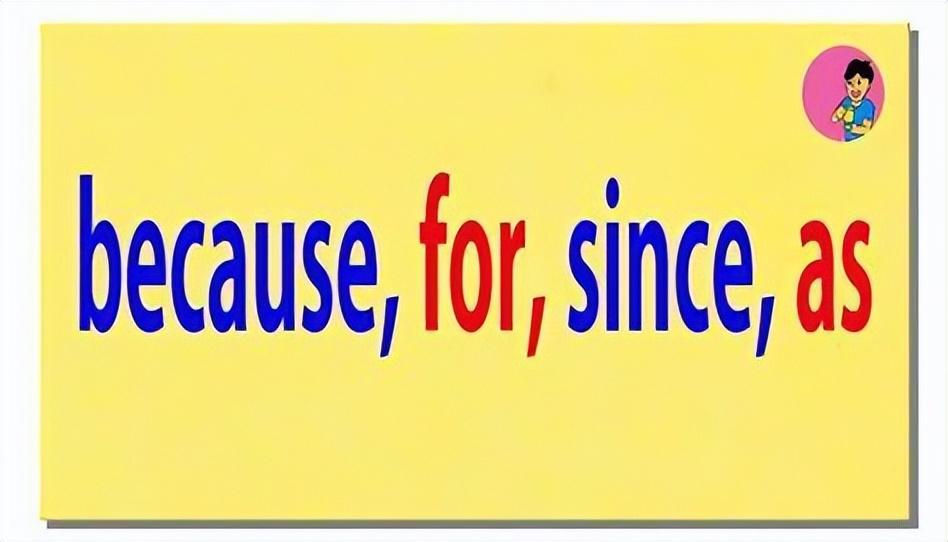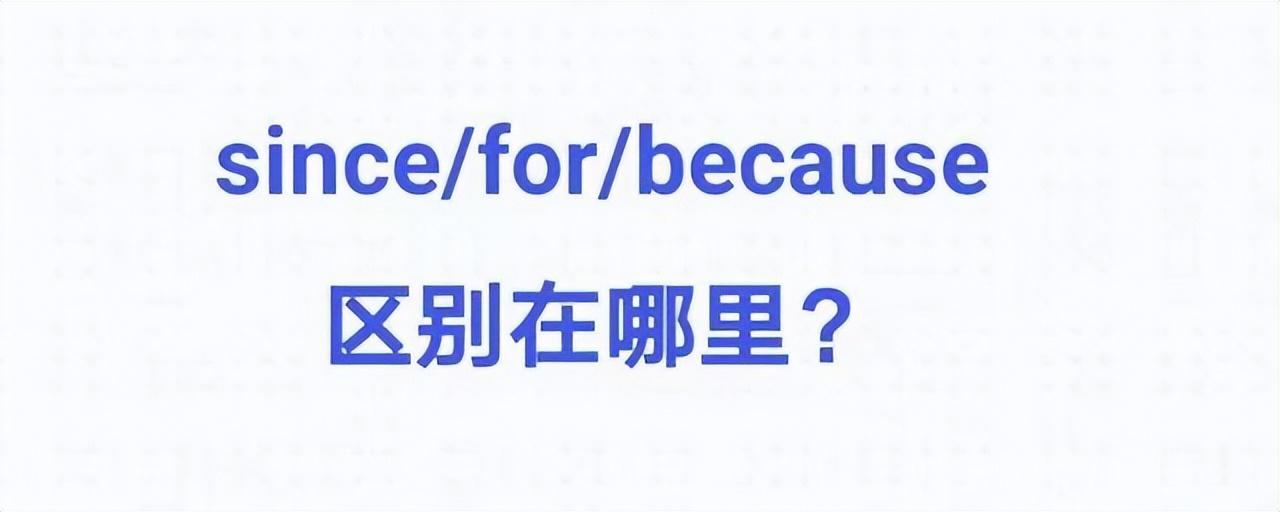热门文章
as用法归纳总结及含义(as、because、since和for)
100次浏览 发布时间:2024-10-14 10:04:43
as、because、since和for,都用来表示“因为,由于”,在句子中充当连词,连接表示原因的复合句,但在用法上有一些差异。
1.as表示“因为、由于”,作为从属连词,它的语气比because和since轻,表达的是明显的或者已知的理由。从位置上看,as引导的从句常放在主句前边,也就是句首,从句后面加逗号。比如:

As you were out, I left a message.你不在,所以我留了一张字条儿。As he was not ready in time,we went without him.由于他没有及时准备好,我们没有等他就走了。
2.because的意思是“因为”,语气比since和as强,用来表示直接的原因。当回答why的问题时,只能用because,不能用since、as或者for。另外需要注意的是,在强调句型中也只能用because。because引导的从句和主句关系密切,因此通常位于主句之后。比如:

I started to cry because I cut my finger.因为割破了自己的手指,我哭了起来。I didn't get it because it cost too much. 因为那东西太昂贵我没买。I do it because I like it.我这样做是因为我喜欢这样做。
It is because they are in need of help that we are prepared to help them.正是因为他们需要帮助,所以我们准备帮助他们
3.since的意思是“因为;既然”,它多表示间接或者附带的原因。语气要比as强。since引导的从句常放在主句之前,其后用逗号。比如:

Since we were in the area, we'd stop by and see them.既然到了这个地方,就该顺便去看看他们。Since she retired she's kept herself very busy.自从退休后,她一直没闲着。Since you know nothing about it,I'll tell you from the beginning.既然你一点也不知道,那我从头讲起。
4.for的意思是“因为”,多用来补充说明理由或者推断其原因。for的语气比较轻,它所引导的分句或者句子必须放在后面。另外,for比较正式,在口语中用的较少。比如:

The old lady does not go out in the winter, for she feels the cold a great deal.这个老太太冬天不出门,因为它特别怕冷。We listened eagerly, for he brought news of our families. 我们急不可待地听着,因为他带来了我们家人的消息。
I believed her—for surely she would not lie to me. 我相信她的话—因为她肯定不会向我撒谎。
相关文章
- 长虹空调用户售后服务中心实时反馈-今-日-更-新 2025-04-22 23:02:00
- 艾森曼热水器24小时售后服务维修点号码实时反馈-今-日-资-讯 2025-04-22 23:00:16
- 金城保险柜全国各市售后热线号码实时反馈-今-日-资-讯 2025-04-22 22:58:32
- 嘉德洛克指纹锁400服务号码全国售后的热线实时反馈-今-日-汇-总 2025-04-22 22:55:20
- 智能私享家指纹锁客服人工号码(全国统一)400客服热线实时反馈-今-日-更-新 2025-04-22 22:54:47
- 飓骅保险柜用户售后客服中心实时反馈-今-日-更-新 2025-04-22 22:53:14
- 艾木欧防盗门服务号码24小时-售后号码实时反馈-今-日-更-新 2025-04-22 22:52:28
- ARISTON燃气灶全国售后维修号码-全国各区网点服务号码实时反馈全+境+到+达 2025-04-22 22:51:42








